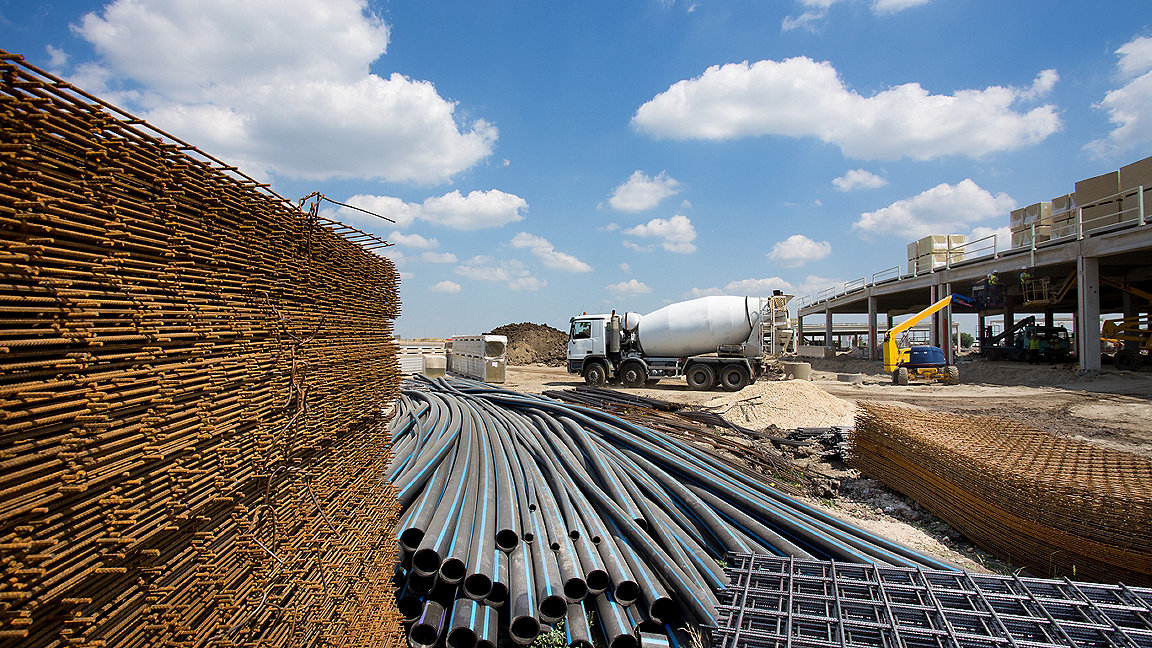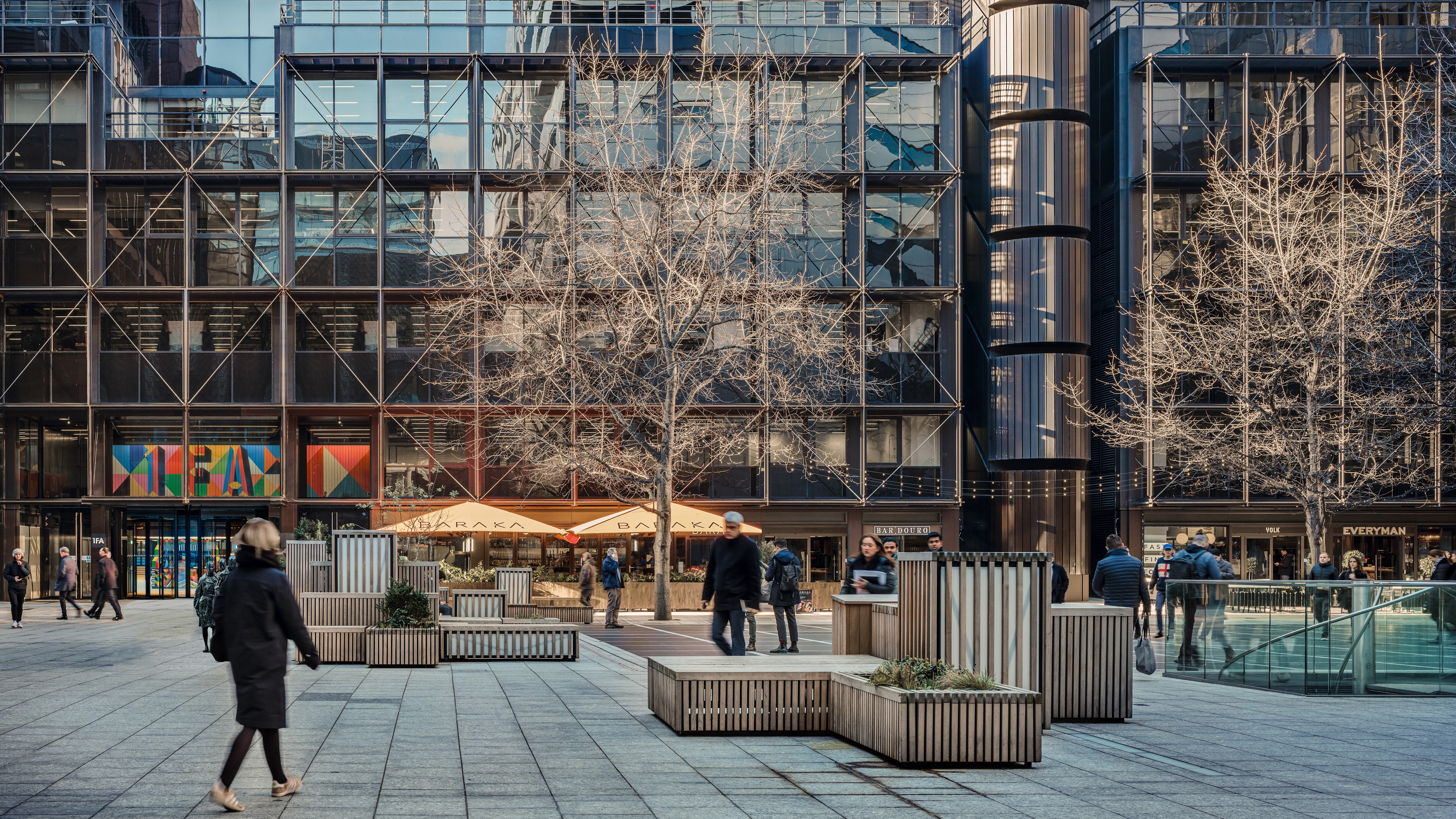
The past couple of years have been extremely challenging for anyone involved in construction, with reduced and unreliable supplies putting significant pressure on the sector.
This is now being exacerbated by rising inflation and a global cost-of-living crisis. Across Europe and the UK, for instance, inflation was 12% on average between January and April.
Yet the demand for data centre development to support ongoing digitalisation continues unabated, and the construction industry is having to dig deep once again.
Sector reports supply and demand dilemma
Perhaps unsurprisingly, in Business Critical Solutions' (BCS) March Thought Leadership survey, our 3,000-plus construction sector respondents reported significant concerns about the future.
At the same time, around 88% of developers and investors expect to increase the amount of European technical data centre area they own or are prepared to fund in the next 12 months.
This is despite them stating that the past year had been the most challenging ever for sourcing raw materials for construction. In addition, manufactured items such as concrete and cement, steel, cladding, and dry lining have all proven to be more difficult to acquire as surplus stocks have been used up and prices suffer from inflation.
A significant proportion of our respondents also reported difficulties in sourcing components to fit out of their facilities. There was a marked increase in problems for all mechanical and engineering equipment in the past year, most notably generators, batteries, transformers, distribution infrastructure and air conditioning.
This certainly resonates with the challenges we at BCS face as we continue to project-manage and cost-manage major data centre developments across the UK and Europe.
Advance orders can help mitigate rising prices
The situation is unlikely to change in the short to medium term – and it may even get worse. Any plans to defer or delay construction therefore need careful consideration.
In the meantime, the industry is having to find the best way to mitigate issues. Our advice to clients has been to work closely with us to do so.
Of course, everyone in the construction industry is used to the need for forward planning and phasing; but this now needs to be taken to a new level. For example, depending on the project and associated cost restraints, we are working with clients to place orders for future phases of any development now. Even if work is not planned for a while, we are booking factory slots for key elements well in advance, to secure the supply and price for the client and give the supplier itself increased certainty.
As with shortages in construction materials, difficulties sourcing fit-out equipment have led to price inflation across the board. More than twice the number of respondents have experienced such rises this year compared to last.
Indeed, in the case of security system components the proportion has increased nearly fourfold, from around 9% to 36% this year. We have seen items containing steel rising by up to 33%, and are expecting more cost increases in the coming months. Due to market demand, even the cost of equipment hired on to site has risen by up to 20%.
It is not just the rise in costs that is an issue, but its speed as well. In May, we saw the price of key elements such as transformers guaranteed for only two weeks when it used to be four, and some cases eight. Some suppliers have been guaranteeing prices for only seven days, with the cost of some materials such as iron ore, nickel, and copper rising on an almost daily basis.
This of course brings with it added pressure on our clients to sign off on costs and project stages quickly or run the risk of paying more or even delaying works.
We recognise that there can be some downsides to forward planning, which effectively ties us to a solution sooner. We operate in a fast-moving industry and if project flexibility is limited, then there is a risk of missing out on future innovations and new technology.
This may in turn limit the appeal of the new data centre to end user clients. The good news is that by building strong relationships within the supply chain, forward payments can be managed and upfront payments limited to the raw materials required, locking in those prices.
Understanding complexity to make progress
The situation is further complicated when there are several levels of sign-off.
This might typically start with the technical team, which is of course focused on getting the best solution, then go to the cost team, which is tasked with getting the best price. Next is the director of construction with overall responsibility for the project, who will not only be seeking the best technical option at the best price but also assessing the risks and benefits.
For some multinational clients there may be an additional level at the company's head office – and remember, we only have two weeks for all this to be processed.
Collaboration and communication are key to making this work. By understanding the client's internal processes we can make sure that our project gateways align with their internal governance.
Getting advance engagement from all stakeholders is also increasingly important, as is fully understanding both the pressures on and objectives of the individuals concerned. Do they have holidays booked, or are they travelling? Small details can make a massive difference in these unusual times.
Our survey respondents are certain that cost pressure will continue to affect the industry. Some 84% expect to see continued inflation in data centre base costs over the coming year, while just 1% do not anticipate an increase. Of course, if most providers foresee inflation in the base costs of the data centre, these rises are likely to be passed on to the end user too.
Arguably, the strong performance of data centre developers during the pandemic will have placed further pressure on its supply chains at a time when this is least needed. For an asset class that depends on innovation and speed to market, data centre projects that have increased lead times and uncertainty will be difficult to accept.
'Some suppliers have been guaranteeing prices for only seven days, with the cost of some materials such as iron ore, nickel, and copper rising on an almost daily basis'
Remaining open to alternatives
In many cases delaying a project is not feasible, as demand levels for data centres show no signs of slowing.
Our advice to clients may be to procure early, and not to source from a single supplier but go to the wider market. We also assess the possibility of using alternative products that may be easier to procure; for example, in substation construction using brick slip pre-cast solutions instead of traditional sandwich cladding panels.
In some cases, we are also suggesting that existing data facilities are reviewed to see whether they can be upgraded or refurbished to provide a short- to medium-term fix. We are seeing significant opportunities in older facilities where we are able to identify and remove single points of failure, as well as the potential to upgrade existing systems with more environmentally friendly solutions. For example, a simple upgrade and refresh to critical infrastructure can liberate trapped electrical capacity for deployment to serve higher density and growing IT loads, for example through UPS replacement or cooling solution changes.
Staying close to our clients ensures that we best support them by providing live real time market data from projects across the global, proactively offering solutions and challenging the status quo. This approach will help mitigate the challenges ahead and help ensure that the data centre sector can continue to meet the growing demand.
Chris Coward is head of project management at Business Critical Solutions consultancy
Contact Chris: Email

